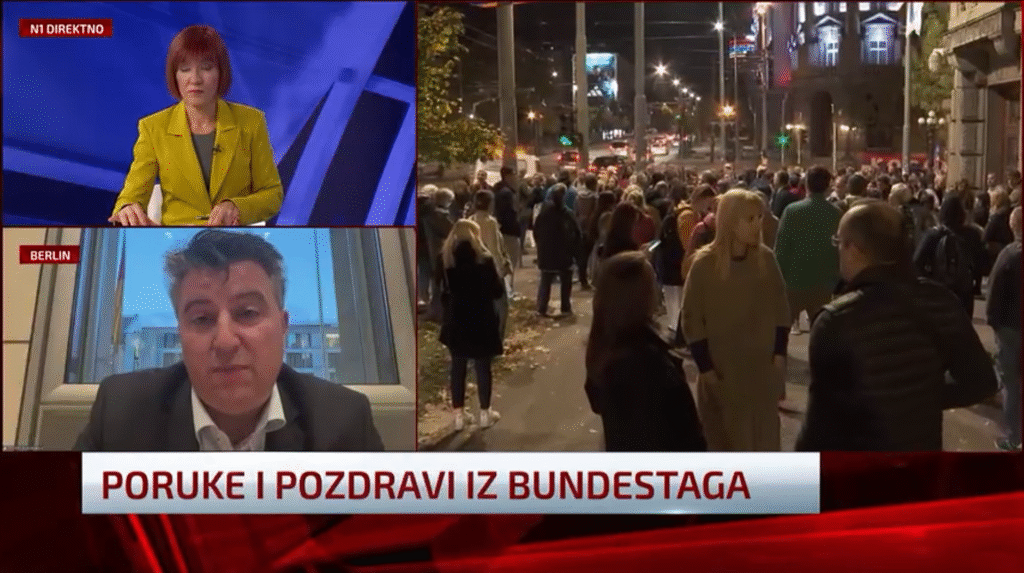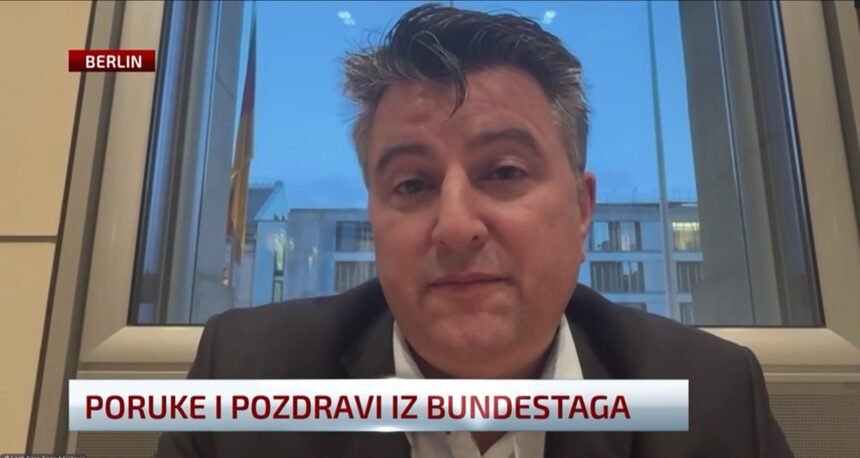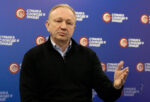Boris Mijatović, a Green Party MP in the Bundestag, said in an interview with N1 that attendees at today’s panel, which featured Raša Nedeljkov and Ana Brnabić, “got a clear picture of who stands for what.” He added:
“Today in the Bundestag, we gained an understanding perhaps from two perspectives that Serbia faces certain challenges which can only be solved by politicians with the right approach. We hope that will happen in the next elections and that those elections will be fair.”
Mijatović emphasized that Nedeljkov showed there is still a desire for EU integration and for free and fair elections, rather than allowing one person to manipulate the process through administrative powers.
Regarding Brnabić, he said:
“Brnabić repeatedly stated that Serbia wants to go to the EU. It’s good to hear she wants Europe, so we call on her to adhere to EU standards. Avoid conspiracy theories, use your role as parliament president properly, moderate discussions, invite civil society, and there must be no threats, personal slander, or insults. People should not fear speaking to authorities. If the state frightens you, citizens cannot be happy.”
Mijatović also mentioned that he invited CRTU, a civil society organization, to provide insight into protests and political developments in Serbia and that the invitation for the president of parliament was unexpected. He asked Brnabić about parliamentary conduct and language:
“We get numerous news from Serbia here in Germany that we don’t fully understand. Certain words and expressions don’t match our understanding of political arguments. I asked her how she would act as parliament president and whether her language would be appropriate for debate. Unfortunately, I did not get a clear answer, and I think the situation in Serbia is very concerning.”
He highlighted problematic vocabulary used by Brnabić and ruling party representatives, such as “scum,” “Gauleiter,” and “occupational administrator”, noting:
“These are very sensitive expressions in Germany because of our history. Using them can influence public opinion. Brnabić did not clarify whether she would stop a session if such words were used. Language shapes the environment, and I hope debates can continue without dehumanizing opponents.”
Mijatović also questioned Brnabić about conspiracy theories, including her claim that the collapse of a canopy in Novi Sad was sabotage.
“She did not deny it, nor did she refute it. Such matters must be clarified publicly. There needs to be investigation and explanation for those who lost loved ones — 16 people. One must be extremely careful before making threats or conspiracy claims.”
He concluded:
“Serbia is part of Europe, but we also need to observe actions, petitions, and language that are inconsistent with EU standards. I am concerned that Serbia’s path to EU integration may lead nowhere. Serbia must work on reforms and alignment with EU values. We focus on the rule of law and must avoid using dehumanizing terms — it’s the 21st century.”








